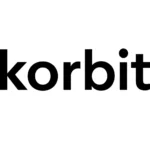Hyundai Motor and Kia extended their streak of record-breaking U.S. sales to a seventh consecutive month in April, with buyers flocking to dealerships ahead of potential price increases when the companies’ tariff-related price freeze expires.
Hyundai’s U.S. sales jumped 19% to 81,503 vehicles compared to April 2024, led by a 41% surge in Tucson crossover sales and strong performances from other core models. Hybrid vehicle demand climbed 46%, reflecting growing consumer interest in fuel-efficient options.
Meanwhile, Kia’s sales rose 14% to 74,805 units, with its Carnival MPV posting a remarkable 79% increase. Both automakers have pledged not to raise prices until June 2, despite the 25% tariffs imposed on imported vehicles since April 3 and similar duties set to hit auto parts starting May 3.
Industry analysts suggest consumers are accelerating purchases before tariff-related price increases take effect. “Competition keeps pricing down, and the lack of competition will allow everyone to raise prices,” noted one automotive expert.
The Korean automakers appear better positioned than many rivals to weather the tariff storm. Hyundai has “the lowest amount of tariff risks among traditional automakers,” according to Moon Yong-kwon, an analyst at Shinyoung Securities, as the group expands its U.S. manufacturing footprint.
Looking ahead, Hyundai Motor Group plans to unveil 42 new models next year, including expanded hybrid offerings, to navigate challenges posed by tariffs and changing market conditions. The group is also shifting some production from Mexico to its Alabama factory while establishing a special task force to address tariff-related challenges.




